-
 Bitcoin
Bitcoin $115100
1.27% -
 Ethereum
Ethereum $3675
2.71% -
 XRP
XRP $2.995
1.45% -
 Tether USDt
Tether USDt $1.000
0.02% -
 BNB
BNB $769.8
2.64% -
 Solana
Solana $168.0
3.25% -
 USDC
USDC $0.9999
-0.01% -
 TRON
TRON $0.3371
1.48% -
 Dogecoin
Dogecoin $0.2051
3.36% -
 Cardano
Cardano $0.7394
2.30% -
 Hyperliquid
Hyperliquid $38.15
0.42% -
 Stellar
Stellar $0.3966
-0.36% -
 Sui
Sui $3.486
2.93% -
 Chainlink
Chainlink $16.72
2.52% -
 Bitcoin Cash
Bitcoin Cash $568.0
4.36% -
 Hedera
Hedera $0.2440
2.59% -
 Ethena USDe
Ethena USDe $1.001
0.04% -
 Avalanche
Avalanche $22.16
2.06% -
 Litecoin
Litecoin $119.1
-0.73% -
 UNUS SED LEO
UNUS SED LEO $8.991
0.04% -
 Toncoin
Toncoin $3.232
-0.39% -
 Shiba Inu
Shiba Inu $0.00001233
2.82% -
 Uniswap
Uniswap $9.717
2.53% -
 Polkadot
Polkadot $3.664
1.85% -
 Dai
Dai $1.000
0.01% -
 Monero
Monero $281.2
-3.89% -
 Bitget Token
Bitget Token $4.350
1.55% -
 Cronos
Cronos $0.1428
5.07% -
 Pepe
Pepe $0.00001050
3.68% -
 Aave
Aave $262.3
3.54%
Bitcoin investment from scratch: How to buy the most cost-effective? How to make money?
To buy Bitcoin cost-effectively, choose low-fee exchanges, use dollar-cost averaging, and consider buying during off-peak times to mitigate market volatility.
Jun 06, 2025 at 04:14 am
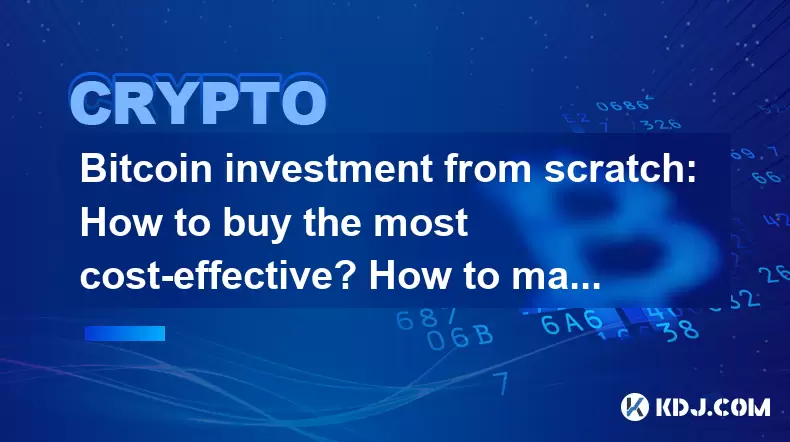
Bitcoin investment from scratch: How to buy the most cost-effective? How to make money?
Embarking on the journey of Bitcoin investment can be both exciting and daunting, especially for beginners. This guide will walk you through the steps to buy Bitcoin in the most cost-effective way and explore strategies on how to make money from your Bitcoin investments.
Understanding Bitcoin and Its Value
Before diving into the specifics of buying and investing, it's crucial to understand what Bitcoin is and why it holds value. Bitcoin is a decentralized digital currency, which means it operates without a central authority such as a bank or government. Its value is derived from its scarcity (there will only ever be 21 million Bitcoins), its utility as a medium of exchange, and its status as a store of value similar to gold.
Choosing the Right Exchange
The first step in buying Bitcoin cost-effectively is selecting the right exchange. Exchanges are platforms where you can buy, sell, or trade cryptocurrencies. Here are some factors to consider when choosing an exchange:
- Fees: Look for exchanges with low transaction fees. Some exchanges charge a percentage of the transaction amount, while others have a flat fee structure.
- Security: Ensure the exchange has robust security measures in place, such as two-factor authentication (2FA) and cold storage for funds.
- User Interface: A user-friendly interface can make your trading experience smoother, especially if you're a beginner.
- Liquidity: High liquidity means you can buy and sell Bitcoin quickly without significantly affecting the price.
Popular exchanges include Coinbase, Binance, and Kraken. Each has its strengths and weaknesses, so it's worth comparing them to find the best fit for your needs.
Steps to Buy Bitcoin
Once you've chosen an exchange, follow these steps to buy Bitcoin:
- Sign up for an account: Visit the exchange's website and sign up for an account. You'll need to provide personal information and complete a verification process, which can take a few days.
- Deposit funds: After your account is verified, deposit funds into your exchange wallet. Most exchanges accept bank transfers, credit/debit cards, and sometimes even PayPal.
- Place an order: Navigate to the trading section of the exchange and place an order to buy Bitcoin. You can choose between a market order (buys at the current market price) or a limit order (buys at a specified price).
- Secure your Bitcoin: Once the purchase is complete, consider transferring your Bitcoin to a personal wallet for added security. Hardware wallets like Ledger or Trezor are highly recommended for long-term storage.
Cost-Effective Strategies for Buying Bitcoin
To buy Bitcoin in the most cost-effective way, consider the following strategies:
- Dollar-Cost Averaging (DCA): Instead of investing a lump sum, spread your investment over time by buying a fixed amount of Bitcoin at regular intervals. This can help mitigate the risk of market volatility.
- Use Low-Fee Exchanges: As mentioned earlier, choosing an exchange with low fees can significantly reduce your costs. Some exchanges also offer fee discounts for using their native tokens.
- Avoid Peak Times: Bitcoin prices can be more volatile during peak trading hours. Buying during off-peak times may help you get a better price.
- Monitor the Market: Keep an eye on market trends and news that could affect Bitcoin's price. Buying during dips can be a cost-effective strategy, but it requires careful timing and research.
Making Money with Bitcoin
There are several ways to potentially make money with Bitcoin, each with its own level of risk and reward:
- HODLing: This strategy involves buying Bitcoin and holding onto it for the long term, hoping its value will increase. HODLing is less risky than frequent trading but requires patience and a strong belief in Bitcoin's future value.
- Trading: If you're comfortable with the risks, you can try to profit from short-term price movements by trading Bitcoin. This can involve day trading, swing trading, or using more advanced strategies like margin trading.
- Staking and Yield Farming: Some platforms allow you to earn interest on your Bitcoin by staking or yield farming. These methods involve lending your Bitcoin to others in exchange for interest payments, but they come with their own set of risks.
- Mining: Bitcoin mining involves using specialized hardware to solve complex mathematical problems, which helps secure the Bitcoin network. Miners are rewarded with new Bitcoins, but the process is energy-intensive and requires significant upfront investment.
Managing Risks
Investing in Bitcoin, like any investment, comes with risks. Here are some tips for managing those risks:
- Diversify: Don't put all your money into Bitcoin. Consider diversifying your investments across different assets to spread the risk.
- Set a Budget: Only invest money you can afford to lose. Cryptocurrency markets can be highly volatile, and there's no guarantee of profit.
- Stay Informed: Keep up with the latest news and developments in the cryptocurrency space. Being informed can help you make better investment decisions.
- Use Stop-Loss Orders: If you're trading Bitcoin, consider using stop-loss orders to limit potential losses. A stop-loss order automatically sells your Bitcoin if the price drops to a certain level.
Frequently Asked Questions
Q: Can I buy Bitcoin with cash?
A: Yes, some exchanges and peer-to-peer platforms allow you to buy Bitcoin with cash. However, this method can be less secure and may involve higher fees compared to using bank transfers or credit/debit cards.
Q: How much Bitcoin should I buy?
A: The amount of Bitcoin you should buy depends on your investment goals, risk tolerance, and budget. Start with an amount you're comfortable with, and consider using dollar-cost averaging to build your position over time.
Q: Is it safe to store Bitcoin on an exchange?
A: Storing Bitcoin on an exchange can be convenient for trading, but it's generally less secure than using a personal wallet. For long-term storage, consider transferring your Bitcoin to a hardware wallet.
Q: How do I know if a Bitcoin investment is right for me?
A: Consider your financial goals, risk tolerance, and investment timeline. If you're comfortable with the potential volatility and have a long-term perspective, Bitcoin might be a suitable investment. Always do thorough research and consider consulting with a financial advisor.
Disclaimer:info@kdj.com
The information provided is not trading advice. kdj.com does not assume any responsibility for any investments made based on the information provided in this article. Cryptocurrencies are highly volatile and it is highly recommended that you invest with caution after thorough research!
If you believe that the content used on this website infringes your copyright, please contact us immediately (info@kdj.com) and we will delete it promptly.
- HashFlare Founders Face the Music: Jail Time Looms?
- 2025-08-07 14:30:12
- Toshi on Binance.US: A Memecoin's Big Break
- 2025-08-07 14:30:12
- Bitcoin, SPAC Mergers, and Parataxis: A New Yorker's Take on Crypto's Wall Street Moment
- 2025-08-07 14:50:27
- Bitcoin, Collateral, and Loan Strategies: A New York Minute on the Future of Finance
- 2025-08-07 14:50:27
- Ethereum's Bullish Surge: Reclaiming Crypto Leadership, a New York Minute
- 2025-08-07 14:55:12
- BlockDAG, Litecoin, and Cardano: Charting the Course in Crypto's Dynamic Waters
- 2025-08-07 09:09:06
Related knowledge
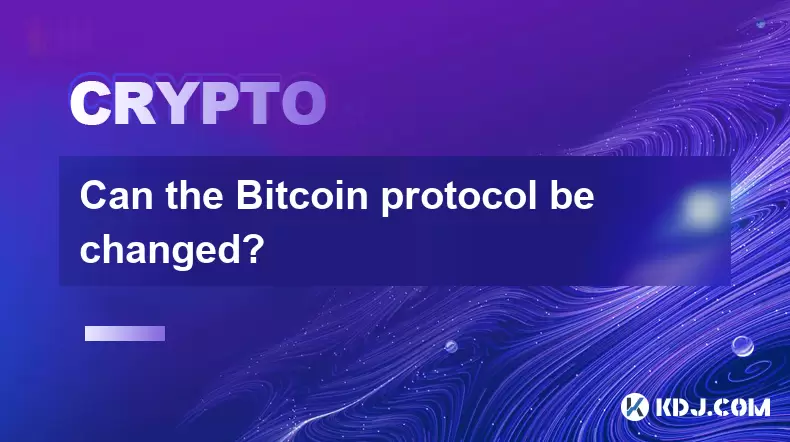
Can the Bitcoin protocol be changed?
Aug 07,2025 at 01:16pm
Understanding the Bitcoin ProtocolThe Bitcoin protocol is the foundational set of rules that govern how the Bitcoin network operates. It defines every...
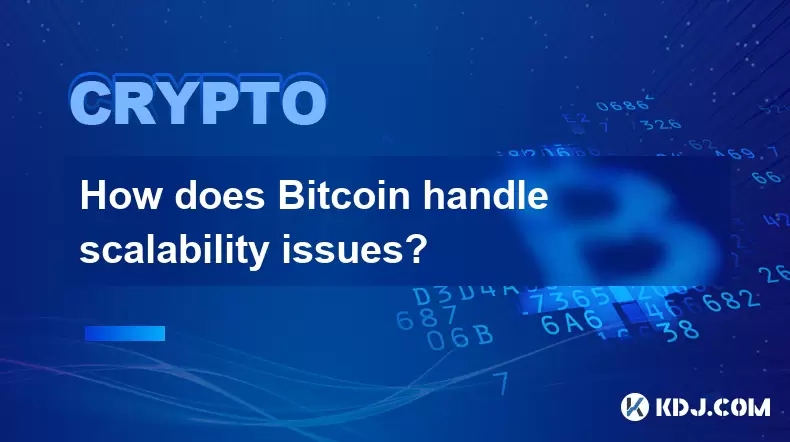
How does Bitcoin handle scalability issues?
Aug 07,2025 at 10:54am
Understanding Bitcoin’s Scalability ChallengeBitcoin’s design prioritizes decentralization, security, and immutability, but these principles come with...
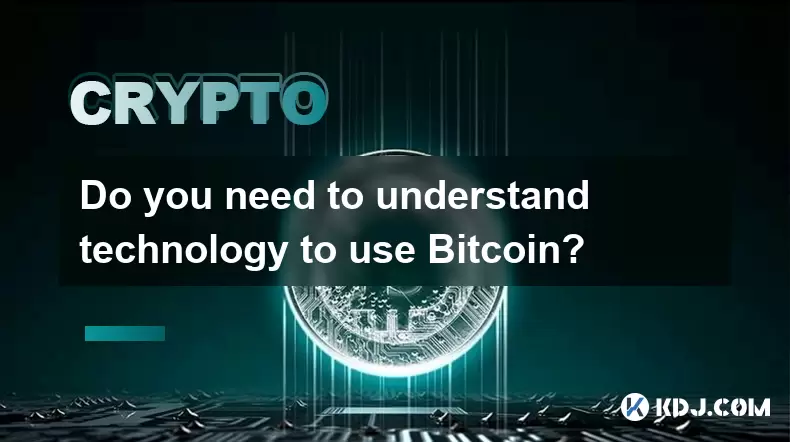
Do you need to understand technology to use Bitcoin?
Aug 07,2025 at 06:17am
Understanding the Basics of BitcoinTo engage with Bitcoin, one does not need a deep understanding of the underlying technology, much like how individu...
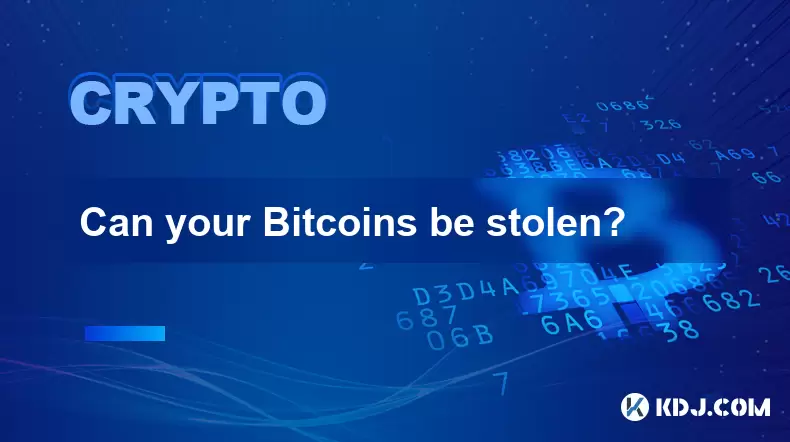
Can your Bitcoins be stolen?
Aug 07,2025 at 03:28am
Understanding the Security of Bitcoin OwnershipThe decentralized nature of Bitcoin means that no central authority controls the network, placing the r...
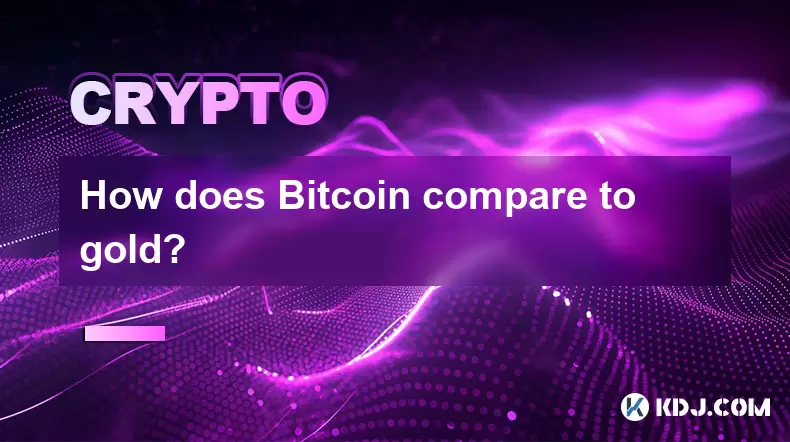
How does Bitcoin compare to gold?
Aug 07,2025 at 03:18am
Historical Context and Origins of Bitcoin and GoldUnderstanding the comparison between Bitcoin and gold begins with their origins and historical roles...
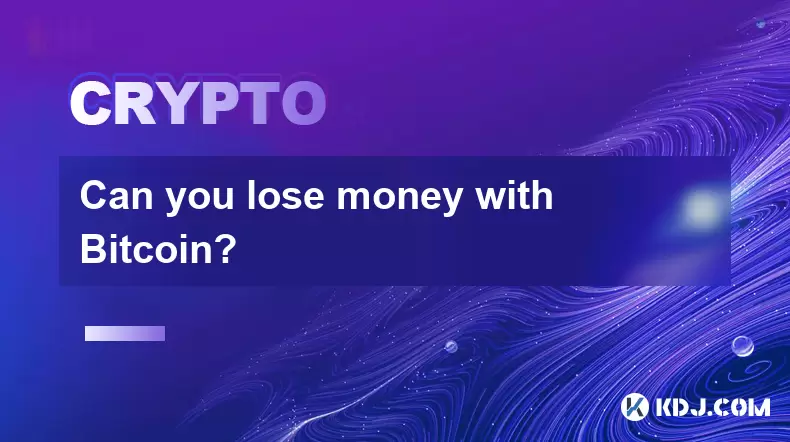
Can you lose money with Bitcoin?
Aug 07,2025 at 07:49am
Understanding the Volatility of BitcoinBitcoin is known for its extreme price volatility, which is one of the primary reasons investors can lose money...

Can the Bitcoin protocol be changed?
Aug 07,2025 at 01:16pm
Understanding the Bitcoin ProtocolThe Bitcoin protocol is the foundational set of rules that govern how the Bitcoin network operates. It defines every...

How does Bitcoin handle scalability issues?
Aug 07,2025 at 10:54am
Understanding Bitcoin’s Scalability ChallengeBitcoin’s design prioritizes decentralization, security, and immutability, but these principles come with...

Do you need to understand technology to use Bitcoin?
Aug 07,2025 at 06:17am
Understanding the Basics of BitcoinTo engage with Bitcoin, one does not need a deep understanding of the underlying technology, much like how individu...

Can your Bitcoins be stolen?
Aug 07,2025 at 03:28am
Understanding the Security of Bitcoin OwnershipThe decentralized nature of Bitcoin means that no central authority controls the network, placing the r...

How does Bitcoin compare to gold?
Aug 07,2025 at 03:18am
Historical Context and Origins of Bitcoin and GoldUnderstanding the comparison between Bitcoin and gold begins with their origins and historical roles...

Can you lose money with Bitcoin?
Aug 07,2025 at 07:49am
Understanding the Volatility of BitcoinBitcoin is known for its extreme price volatility, which is one of the primary reasons investors can lose money...
See all articles

























































































